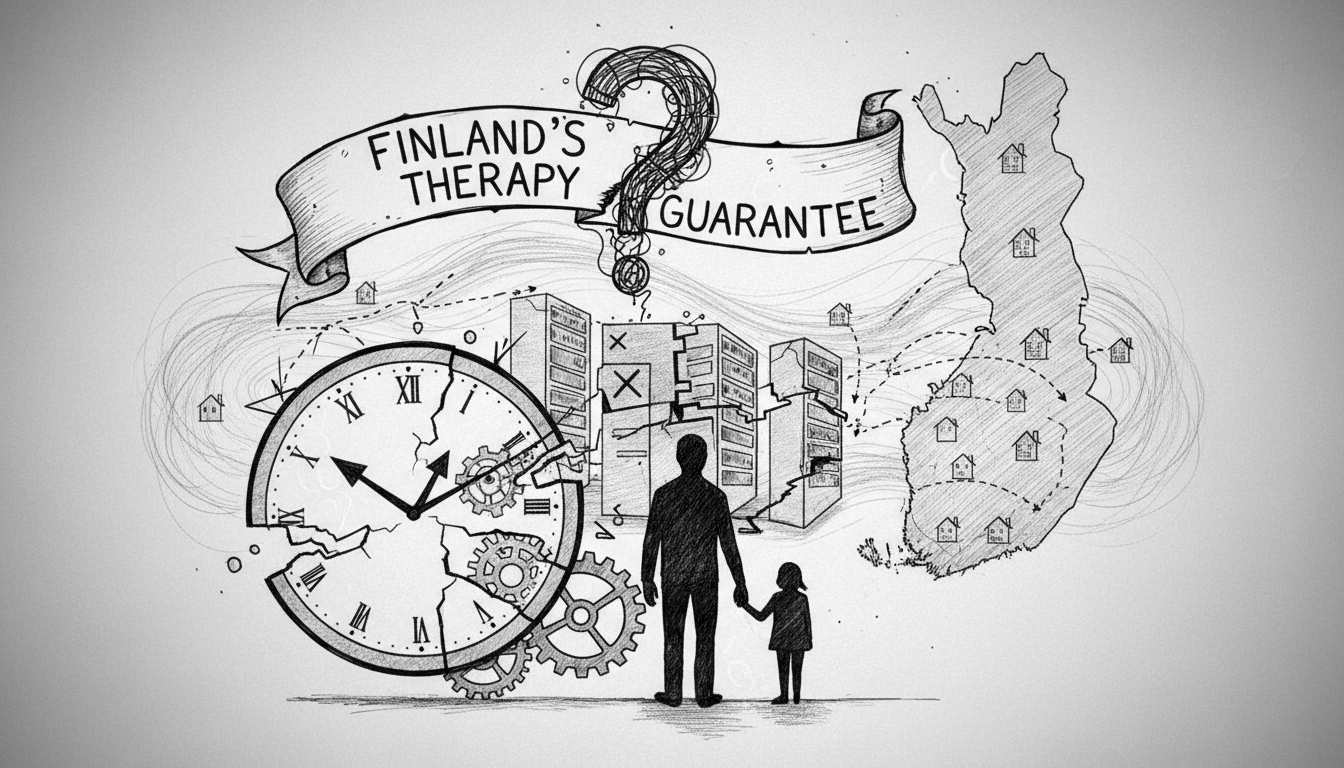Finland's welfare regions cannot track whether children and young people receive therapy within the promised one-month timeframe. The nation's therapy guarantee system faces serious monitoring challenges due to incompatible patient data systems across different regions.
Chief Physician Terhi Aalto-Setälä from the Finnish Institute for Health and Welfare confirmed the problem. She said many regions have failed to provide the required follow-up data. The first monitoring report published in late October revealed major gaps in coverage.
Aalto-Setälä explained the core issue. Not all welfare regions can properly code therapy sessions in their patient record systems. This creates invisible barriers to tracking treatment access.
Finland's therapy guarantee represents a cornerstone of the country's social welfare system. The policy ensures children and young people should access mental health services within 30 days. Yet the current monitoring failure raises questions about implementation.
The Nordic welfare model typically emphasizes transparency and data-driven social policies. Finland's situation contrasts with neighboring Sweden and Norway, where centralized health data systems often provide clearer oversight.
This monitoring gap affects families across Finland's 21 welfare regions. Parents seeking mental health support for their children cannot verify whether the guarantee functions as intended. The problem may disproportionately impact rural areas where health services face additional resource challenges.
Mental health professionals express concern about the implications. Without reliable data, policymakers cannot identify regions needing additional support. They also cannot measure the program's true effectiveness.
The timing presents additional complications. Children's mental health needs have increased in recent years, making timely access more crucial than ever. Delayed treatment can lead to worsened conditions and longer recovery periods.
What happens next? Welfare regions must upgrade their data systems to meet reporting requirements. The Finnish Institute for Health and Welfare will likely push for standardized reporting formats. Meanwhile, families continue relying on a system whose performance remains partially unmeasurable.
The situation highlights a common challenge in digital healthcare implementation. Even well-intentioned policies require functional technical infrastructure. Finland's case shows how data system limitations can undermine policy accountability.
International observers note the irony. Finland typically excels in digital governance and transparency. This monitoring gap represents an unusual stumble for a nation known for efficient public administration.
For now, the therapy guarantee operates with limited oversight. Children and families must trust the system works, even when the data to confirm it remains unavailable.

